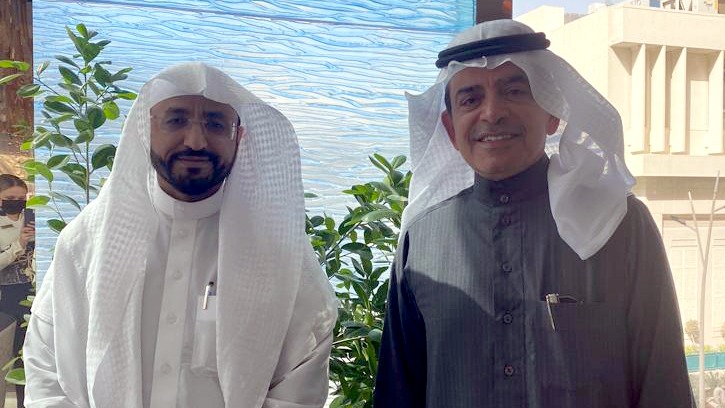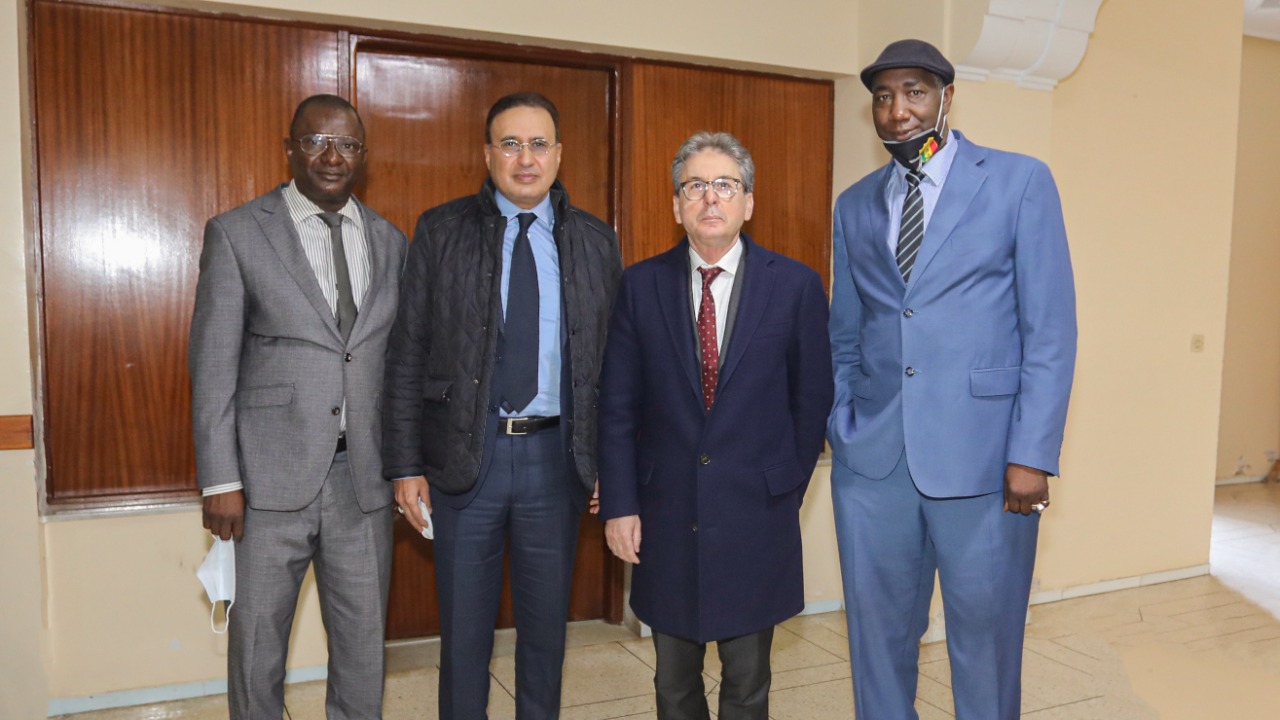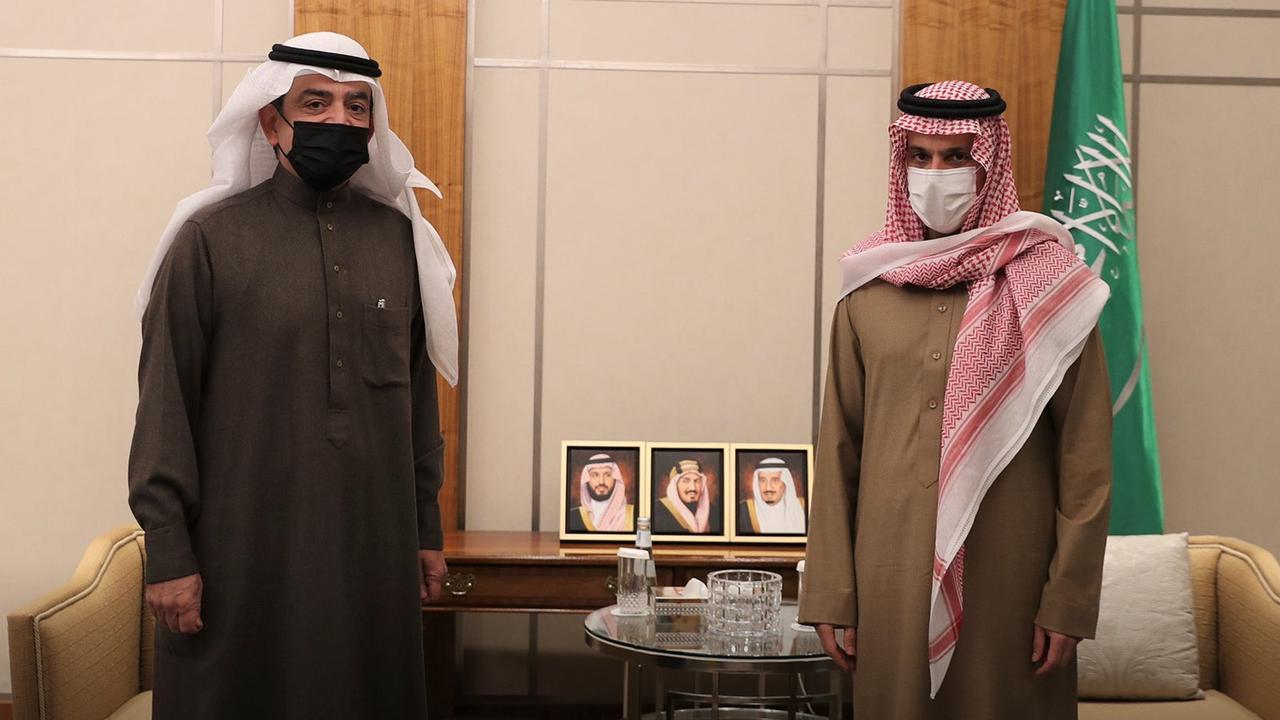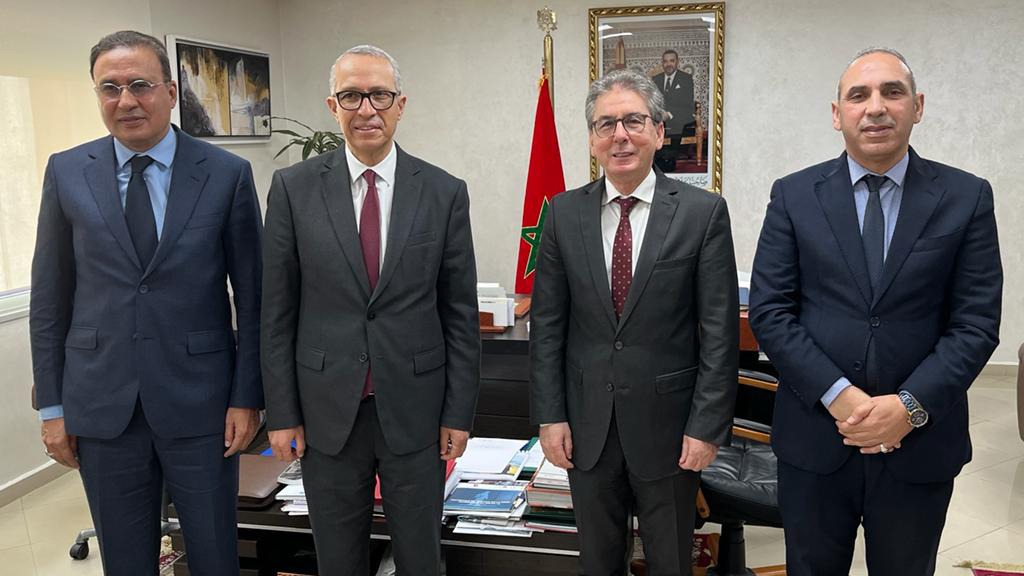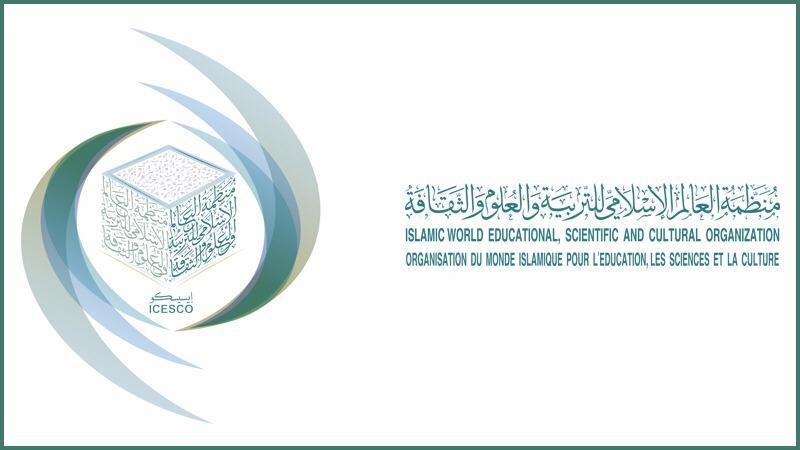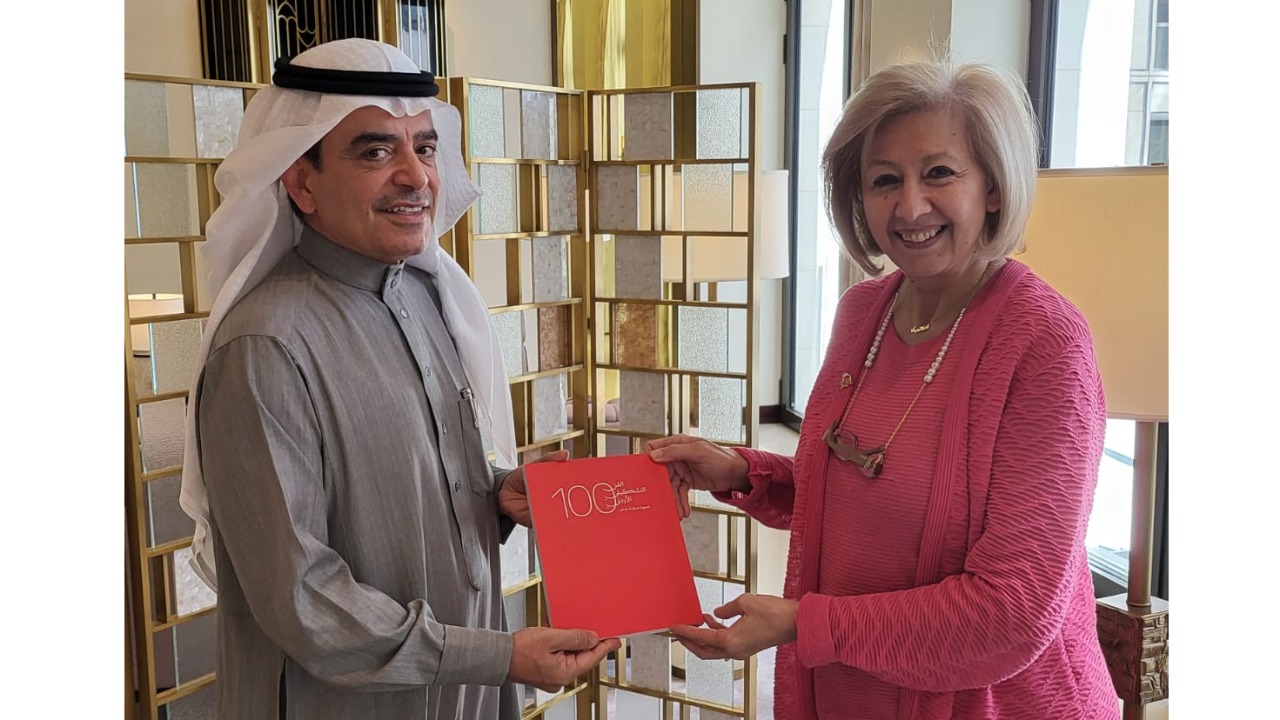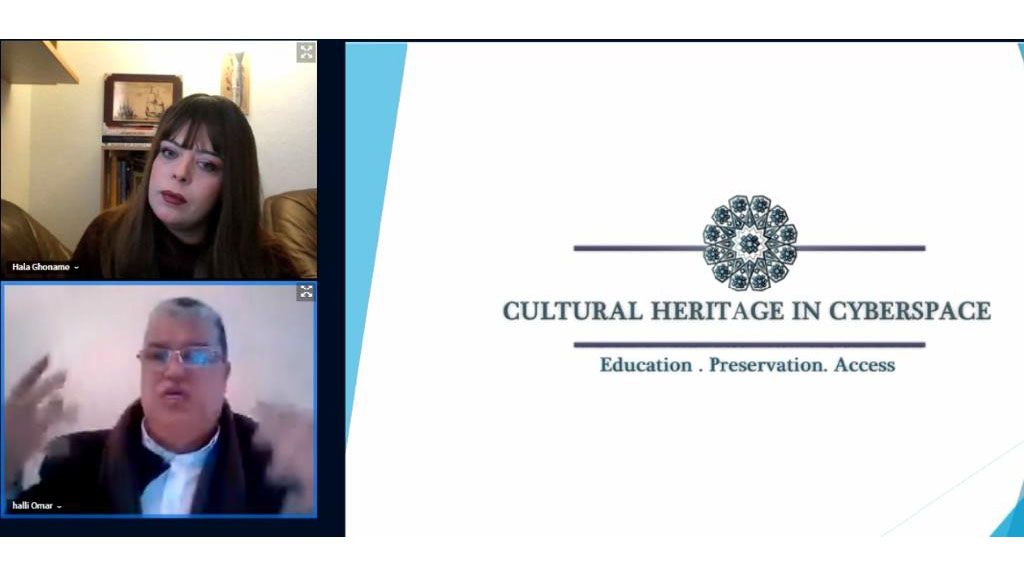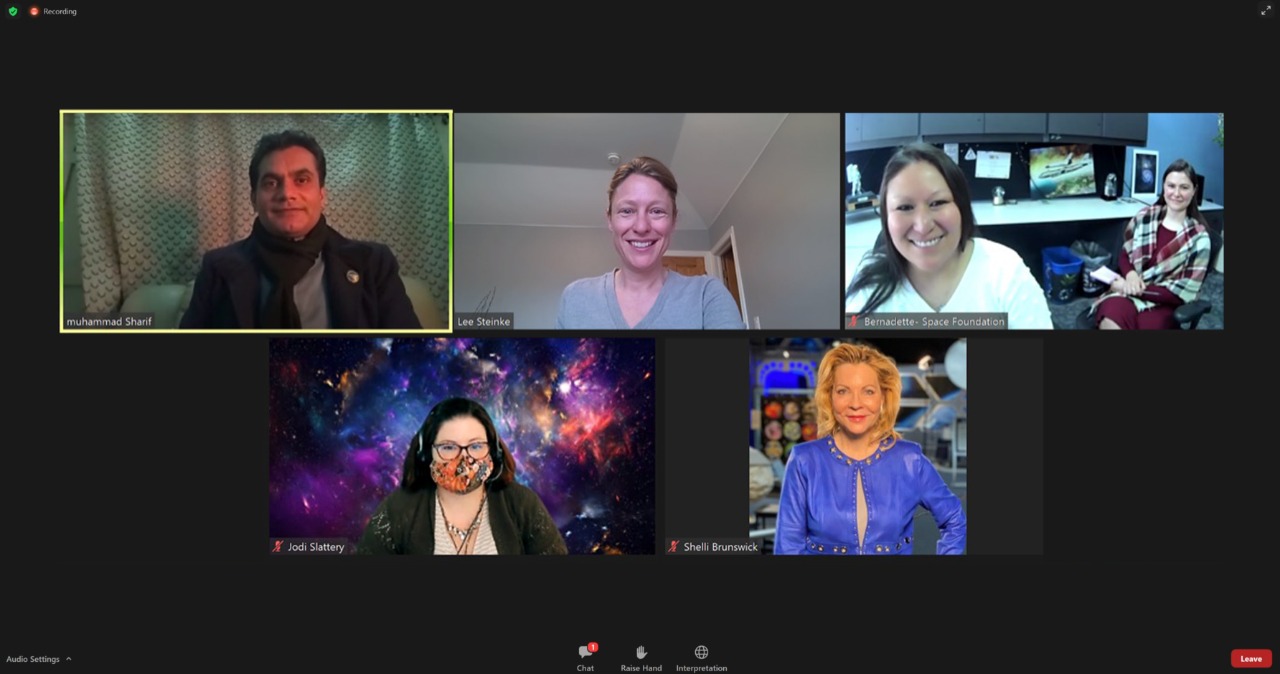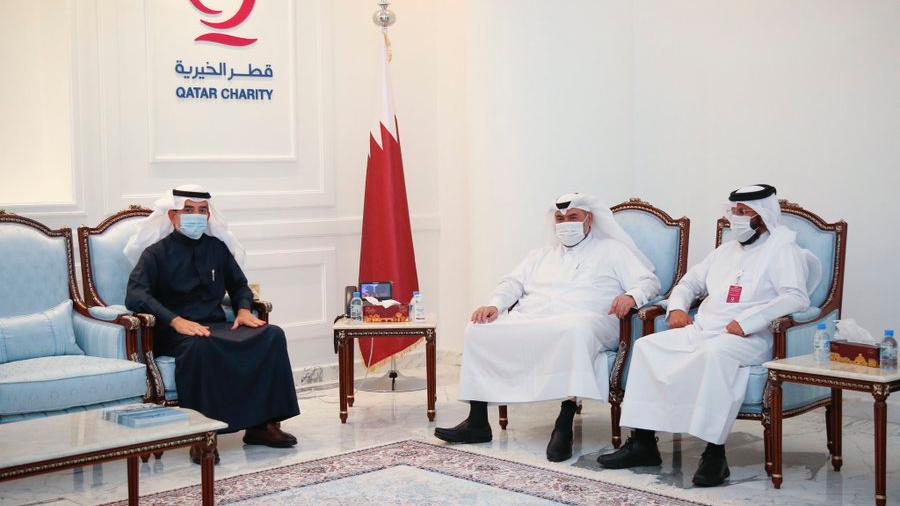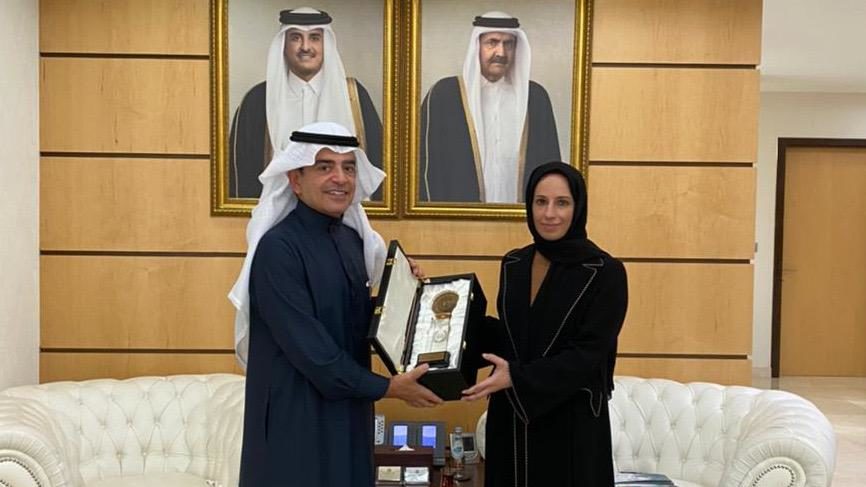Further to the meeting held on December 22, 2021, between Dr. Salim M. AlMalik, Director-General (DG) of the Islamic World Educational, Scientific and Cultural Organization (ICESCO), and Sheikh Dr. Mohammad bin Abdulkarim Al-Issa, Secretary-General of the Muslim World League (MWL), during which they discussed the organization of the International Exhibition and Museum on the Prophet’s Biography and Islamic Civilization in Rabat, Dr. AlMalik and Sheikh Dr. Nasser bin Misfir Al-Zahrani, head of the Exhibitions and Museums Department of the MWL, held a meeting on Tuesday, January 25, 2022, to discuss arrangements for the organization of the International Exhibition and Museum on the Prophet’s Biography and Islamic Civilization in Rabat, Morocco, under the high patronage of His Majesty King Mohammed VI.
During the meeting, which was held in Riyadh, the two parties reviewed the preparations for organizing the Exhibition and Museum under the supervision of Sheikh Dr. Al-Issa. They also reviewed the arrangements for the visit of a delegation of the League’s officials and supervisors of the International Exhibition and Museum on the Prophet’s Biography and Islamic Civilization in Medina, to the site designated for the establishment of the Exhibition, which is of particular importance in the light of the celebration of Rabat as Culture Capital in the Islamic World in 2022, and the cooperation that binds ICESCO and the MWL and their desire to hold it in several Member States of the Organization in the future.
Dr. Al-Malik and Dr. Al-Zahrani affirmed the commitment of ICESCO and the League to strengthen the existing partnership between them and to continue working on the implementation of civilizational programs and projects, which aim at promoting Islam and its noble values and principles, highlighting its true image in its civilizational dimensions, and correcting misconceptions about it.
The International Exhibition and Museum on the Prophet’s Biography and Islamic Civilization receives the attention and guidance of the Custodian of the Two Holy Mosques, King Salman bin Abdulaziz, and the Crown Prince, His Royal Highness Muhammad bin Salman. The Exhibition and Museum are dedicated to the promotion of the values of Islam, namely justice, peace, mercy, tolerance and moderation, based on the Holy Quran, the Seerah of the Prophet, and the glorious Islamic history. The institution is equipped with the latest technologies allowing the visitor to discover the Prophet’s Seerah and the historical scenes and monuments. It includes 150 pieces of evidence of the greatness of Islam and the preservation of the rights of non-Muslims, in addition to more than 500 artifacts from the Prophetic era.


